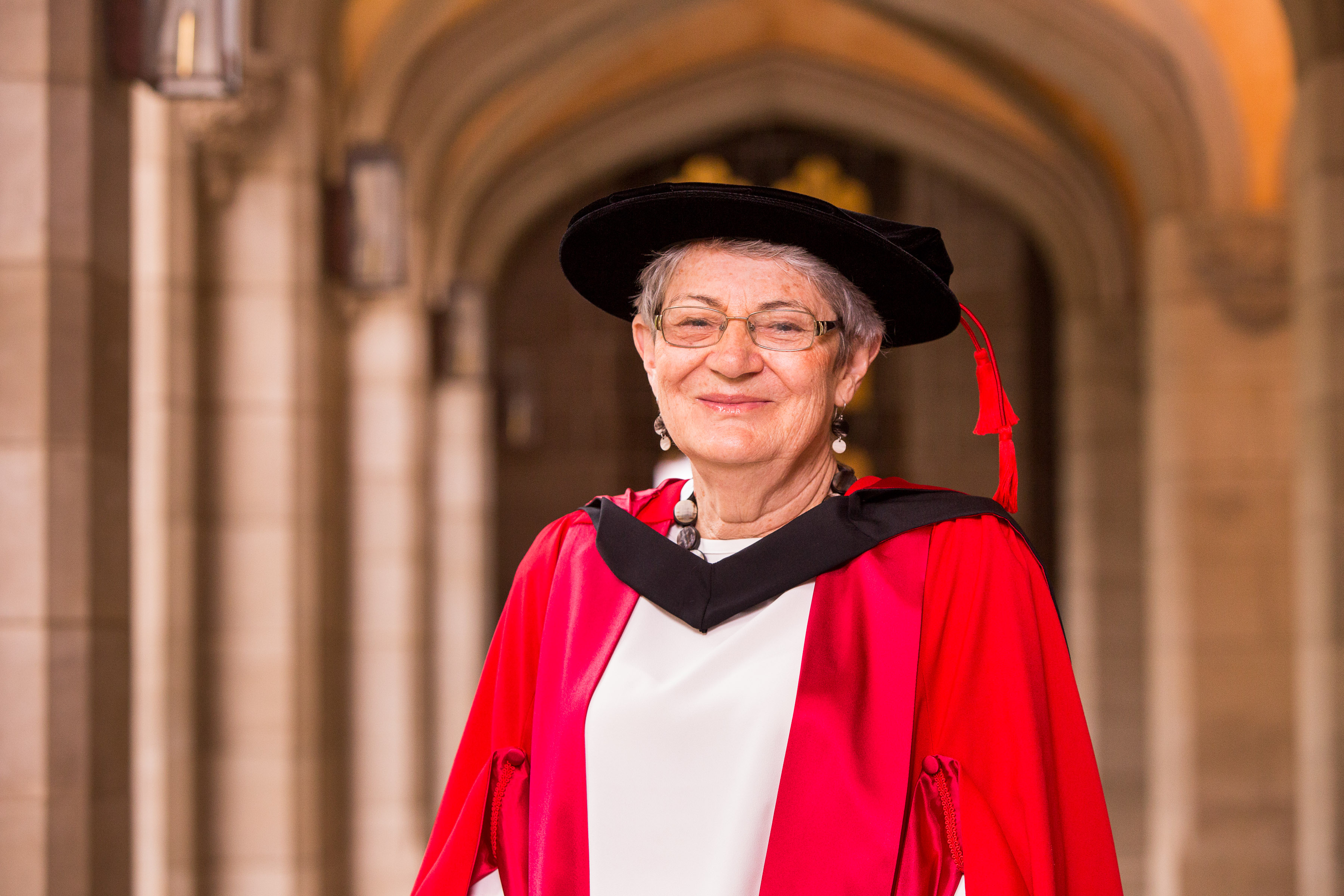Professor Julie Cliff AO
Citation for the Award of Doctorate of Medical Science (Honoris Causa)

‘Give a man a fish and you feed him for a day; teach a man to fish and you feed him for a lifetime’. The origins of this proverb may be uncertain but its meaning, that it is good to care for someone but even better to teach them to care for themselves, is clear and is epitomised in the life and work of Professor Julie Cliff.
Julie Cliff graduated MBBS from the University of Melbourne in 1967, having experienced her first taste of tropical medicine during a student elective in New Guinea. After a diploma in tropical medicine at the London School of Hygiene and Tropical Medicine and post-graduate physician training in London, Julie spent two years in Tanzania, where she lectured at the University of Dar es Salaam, before moving to the newly independent Mozambique. She later returned to the London School for a Master’s in Community Health.
For almost forty years now, Julie Cliff has lived and worked in Mozambique, helping to build both the health system and its medical workforce. In this time her research has spanned a diverse range of topics, from infectious disease prevention and control through investigating epidemics and health policy. She is responsible for a significant body of work revealing the causes of konzo – high levels of cyanide present in the staple food cassava, combined with a low protein diet – and for developing responses to limit the toll of this crippling, paralytic disease in poor rural communities in Africa.
Julie Cliff has also made important contributions to the establishment and development of the Mozambique health system as a physician and epidemiologist at Maputo Central Hospital and with the Ministry of Health, and as a professor in community health at Eduardo Mondlane University in Maputo. Since her arrival in Mozambique, the medical workforce has increased more than tenfold; over a thirty year period most doctors were taught by Julie Cliff. She was crucial to the establishment of the Memorandum of Understanding that has existed between the University of Melbourne and the Eduardo Mondlane University since 2010.
Many of Julie Cliff’s contributions to the health of poor communities across the world extend beyond Mozambique. As a Hesperian Fellow, she makes significant contributions to updating the Hesperian ‘Where There Is No Doctor’ publications, providing easy to understand health information to people throughout the world. She is an Affiliate Professor at the University of Washington in Seattle, and an Associate of the Burnet Institute in Melbourne.
International recognition for her achievements in epidemiology and public health is widespread. She was an International Epidemiologic Fellow at the Centers for Disease Control in Atlanta, USA, Visiting Fellow to the National Centre for Epidemiology and Population Health in 1992, appointed an Officer of the Order of Australia in 1996, and awarded an Honorary Doctor of Laws from Monash University. She presented the prestigious John Snow Society Pumphandle Lecture in London in 2013. She is also a Fellow of the Royal College of Physicians of London.
Julie Cliff’s extraordinary contribution to the people of Mozambique has been demonstrated through her exceptional leadership, scholarship, teaching, and her dedication to building a Mozambican health system and medical workforce. Communities in Mozambique and throughout the world have much to thank Julie Cliff for their future health and wellbeing.